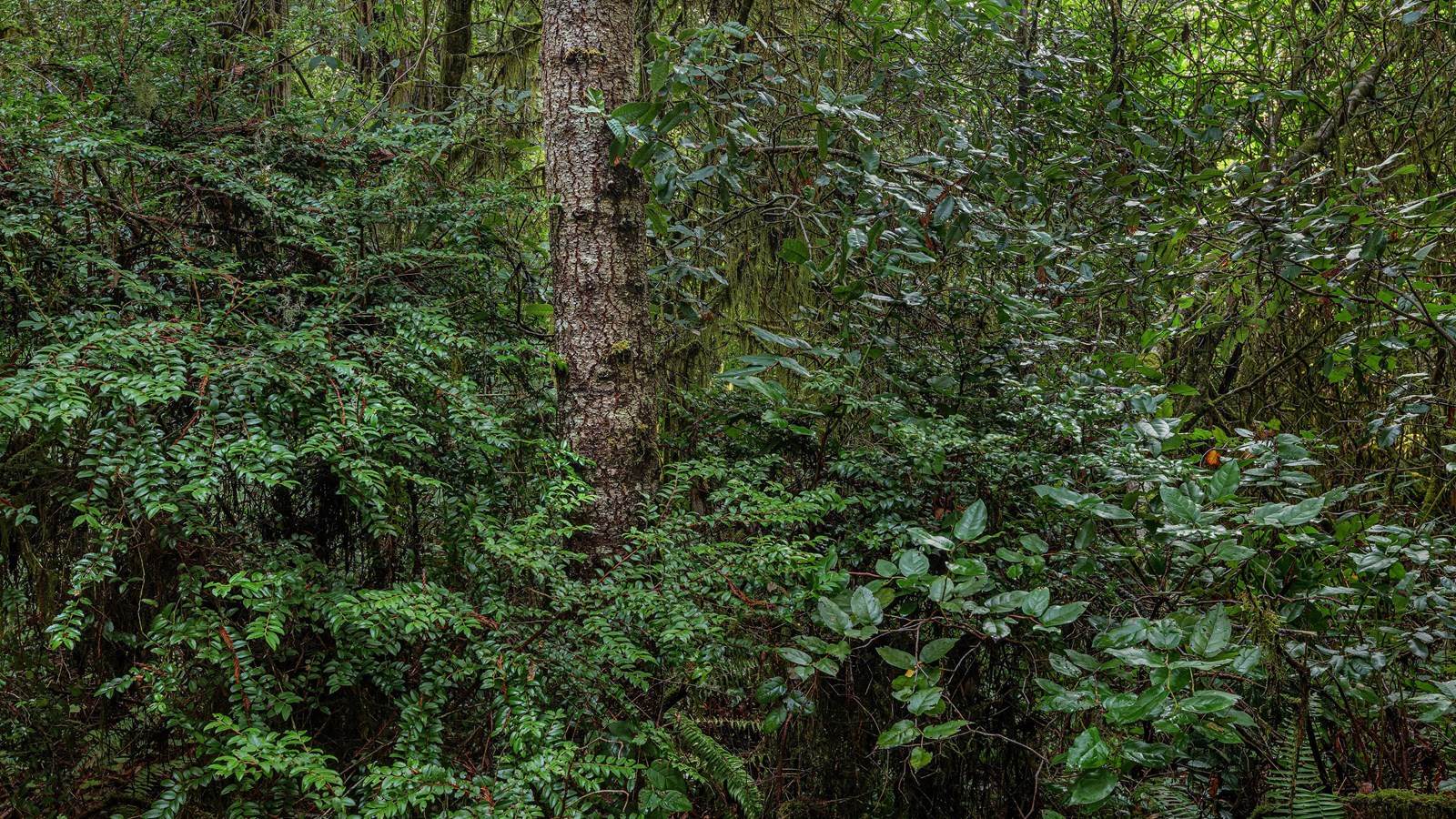Last updated: July 19, 2022
Place
Lady Bird Johnson Nature Trail Stop #4

Dave Van de Mark
Quick Facts
Location:
Lady Bird Johnson Trail
Significance:
Walking tour in old-growth redwoods
Designation:
National Park
Amenities
1 listed
Scenic View/Photo Spot
More than Redwoods
Redwoods do not stand alone. In fact, what we call old-growth redwood forests may contain as few as eight or ten of the towering monarchs per acre. A diverse community of plants and animals thrive in the shadows of the redwood canopy. High above, Douglas-fir and western hemlock share the skyline with redwoods, their mossy branches home to flying squirrels and marbled murrelets, seabirds that only nest on large limbs of old-growth conifers. Tanoak and rhododendron fill in the middle space between the forest canopy and forest floor. Closer to the ground, the fleshy black berries of evergreen huckleberry and salal provide sustenance for bears and birds alike, and their shrubby forms shelter the ferns and redwood sorrel of the forest floor.
The redwoods dominate and define this timeless forest community. They protect, shelter, and sustain the other residents of the forest through hundreds of years of harsh winter storms and long summer droughts.
Redwoods do not stand alone. In fact, what we call old-growth redwood forests may contain as few as eight or ten of the towering monarchs per acre. A diverse community of plants and animals thrive in the shadows of the redwood canopy. High above, Douglas-fir and western hemlock share the skyline with redwoods, their mossy branches home to flying squirrels and marbled murrelets, seabirds that only nest on large limbs of old-growth conifers. Tanoak and rhododendron fill in the middle space between the forest canopy and forest floor. Closer to the ground, the fleshy black berries of evergreen huckleberry and salal provide sustenance for bears and birds alike, and their shrubby forms shelter the ferns and redwood sorrel of the forest floor.
The redwoods dominate and define this timeless forest community. They protect, shelter, and sustain the other residents of the forest through hundreds of years of harsh winter storms and long summer droughts.
